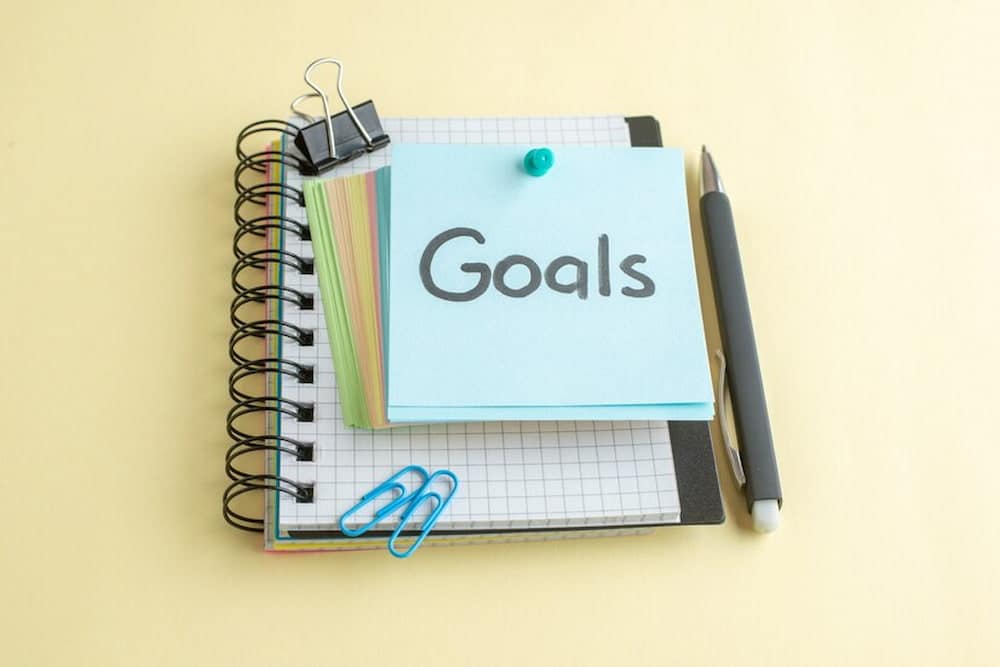There are countless good reasons for starting a new fitness regimen. But no matter your motivation for pursuing fitness, it’s possible to be successful. It’s also possible to fail.
You’re free to define success and failure however you wish. For some people, exercising a few times a week is success, while others are interested in winning competitions or surpassing previously acknowledged human limits.
Goals are how we define success and failure for ourselves, and they motivate us to do better. But if your goals are problematic or misaligned, it’s going to cost you dearly.
What are the biggest problems associated with personal fitness goals, and how can you overcome them?
The Benefits and Drawbacks of Goals
According to Nathan Demetz of Demetz Personal Training, “Goals are critical to your success in the world of fitness. It’s why setting goals is one of the first things I do with all my clients. Unfortunately, most newcomers don’t have enough knowledge or context to set appropriate goals – and if they don’t have at least some external guidance, it can compromise their results.”

Good goals are reasonable, challenging, motivating, and easy to understand and work with. In the right context, goals can help you work harder and achieve more.
In contrast, bad or poorly formed goals can lead you in the wrong direction, demotivate you, and even sabotage your results.
How is this the case, and how can you make sure your goals are good ones?
The Biggest Problems With Personal Fitness Goals
These are some of the biggest problems we see with personal fitness goals.
1. They’re not challenging.
One of the biggest problems people face is that their goals aren’t sufficiently challenging. Setting a goal to walk 10 minutes a day, 3 days a week might be challenging for some select individuals, but it’s not going to drive most people to improve their lifestyles or change their habits meaningfully.

You need something to work for – preferably, something beyond your current capabilities.
2. They’re too ambitious.
We also need to consider the other end of the spectrum. Ambitious goals are good, but it’s possible for goals to be too ambitious – and therefore practically unachievable. If you’re currently obese and you haven’t worked out in many years, it’s unreasonable to expect to run a 5-minute mile by the end of next month. Setting this type of goal may be temporarily inspiring, but it’s only going to make you feel defeated in the end.
3. They’re too broad.
Some goals are too broad to be meaningful. If your goal is to “get in better shape” or “get stronger,” you haven’t done enough work.

These are certainly good aspirations, but goals need to be specifically defined if they’re going to be effective.
4. They’re too narrow.
In pursuit of this, goals can become too narrow. Wanting to bench press 300 pounds is great if you’re interested in building significant strength – but what about the rest of your body? Narrow goals do have a place in your motivational framework, but they shouldn’t exist totally in isolation.
5. They have no timeline or framework.
You need to have a timeline, or else your goals are practically worthless. Setting a goal to lose 40 pounds may be appropriate for you, but if you have an infinite amount of time to achieve it, you can endlessly procrastinate and make excuses without ever facing a reckoning. Set deadlines for yourself.
6. They aren’t sustainable.
Good fitness goals are ones that can be sustained indefinitely. You may want to achieve your lowest-ever weight, but is it reasonable to maintain that weight for years after? If you don’t keep sustainability in mind, you might crash after reaching your fitness goal.
7. They’re made prematurely.
It’s easier to set “good” fitness goals if you have knowledge, experience, and context for them. If you’re a total newcomer, you probably shouldn’t make goals entirely on your own; you should consider working with a personal trainer or other, more experienced peers.
8. They’re made by (or for) someone else.
There’s nothing wrong with reading or talking about fitness goals set by and for other people. But your goals should be hyper-specific to your needs, desires, schedule, and current fitness level. Highly personalized goals are the path to individual success.

If you can overcome all these problems and keep your goals in alignment with your vision for your fitness-related future, you should have a reasonable blueprint for success. Your goals will require some fine-tuning and adjustment, of course, but they’ll serve as an ideal foundation for the next phases of your fitness journey.








Reply